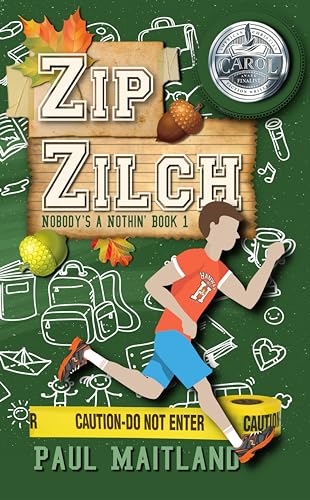References to prices on this website refer to prices on the main Amazon.com website for US customers. Prices will vary for readers located outside the US, and prices for US customers may change at any time. Always check the price on Amazon before making a purchase.
Why should I provide my email address?
Start saving money today with our FREE daily newsletter packed with the best FREE and bargain Kindle book deals. We will never share your email address!
Sign Up Now!

It’s Giveaway time! Get a free bonus entry into our monthly raffle and check out Flashpoint: An FBI Thrillerby Catherine Coulter

Prepare and survive. When an EMP cripples the nation’s power grid, lawlessness erupts across the country. Frozen Farmhouse: An EMP Post Apocalypse Prepper Thriller Boxset by Robert J Walker
Prepare and survive. When an EMP cripples the nation’s power grid, lawlessness erupts across the country. Frozen Farmhouse: An EMP Post Apocalypse Prepper Thriller Boxset by Robert J Walker

Perhaps going home can wait a little longer. Sorrento Soiree: An Italian Interlude Travel Romance by Toni Carrera, Robert Morrow
Perhaps going home can wait a little longer. Sorrento Soiree: An Italian Interlude Travel Romance by Toni Carrera, Robert Morrow

He doesn’t have time for love, but that doesn’t keep me from falling. Moonlighting with the Werewolf: The Bridgewater Pack Series by Cindi Madsen
He doesn’t have time for love, but that doesn’t keep me from falling. Moonlighting with the Werewolf: The Bridgewater Pack Series by Cindi Madsen

It’s Giveaway time! Get a free bonus entry into our monthly raffle and check out Random Acts: A Joanna Brady and Ali Reynolds Novella by J.A. Jance
It’s Giveaway time! Get a free bonus entry into our monthly raffle and check out Random Acts: A Joanna Brady and Ali Reynolds Novella by J.A. Jance

What would you do if your past came back to kill you? Assassins Hunted: An explosive edge of your seat assassin thriller (Eva Delacourt thrillers Book 1) by Rachel Amphlett
What would you do if your past came back to kill you? Assassins Hunted: An explosive edge of your seat assassin thriller (Eva Delacourt thrillers Book 1) by Rachel Amphlett

A true Vietnam War saga based on 50 interviews with veterans who were there and relatives of those who didn’t come home. Swift Sword: The True Story of the Marines of MIKE 3/5 in Vietnam, 4 September 1967 by Doyle Glass
A true Vietnam War saga based on 50 interviews with veterans who were there and relatives of those who didn’t come home. Swift Sword: The True Story of the Marines of MIKE 3/5 in Vietnam, 4 September 1967 by Doyle Glass

A Duke disgraced by whispers. A Lady drawn to his side. Can they silence the rumors and find love at last? The Undesirable Duke: A Sweet Regency Romance (Christmas in London Book 2) by Rose Pearson
A Duke disgraced by whispers. A Lady drawn to his side. Can they silence the rumors and find love at last? The Undesirable Duke: A Sweet Regency Romance (Christmas in London Book 2) by Rose Pearson

A fast-paced, hilarious new entry into the middle school (and beyond) genre! Zip Zilch: Nobody’s a Nothin’ Book 1 by Paul Maitland
A fast-paced, hilarious new entry into the middle school (and beyond) genre! Zip Zilch: Nobody’s a Nothin’ Book 1 by Paul Maitland

It’s Giveaway time! Get a free bonus entry into our monthly raffle and check out Arkangel: A Sigma Force Novel by James Rollins
It’s Giveaway time! Get a free bonus entry into our monthly raffle and check out Arkangel: A Sigma Force Novel by James Rollins

Freebie Friday! Here’s your free Kindle book!
Freebie Friday! Here’s your free Kindle book!

Over 1,100 rave reviews say “Grab this children’s favorite while it’s absolutely FREE! Take the Dog Out! by Lynne Dempsey
Over 1,100 rave reviews say “Grab this children’s favorite while it’s absolutely FREE! Take the Dog Out! by Lynne Dempsey


Forget Black Friday and Cyber Monday: Why Christmas Kindle Day Will Soon Be the Biggest Online Shopping Day Each Year, and Why It Changes Everything
By Steve Windwalker
A couple of decades ago this week, during my stretch as an indie brick-and-mortar bookseller, and a member in good standing of the American Booksellers Association, I found myself once again on the home stretch of the business year. Each day in December would be a little bit better than the day before as holiday shoppers helped put a smile back on my face after the months of difficult sledding that came before. Come Christmas Eve I’d close the store around 7 or 8 pm, take my family out for dinner and try to get myself into the proper holiday spirit as I contemplated the dramatic post-Christmas drop-off in sales.
after the months of difficult sledding that came before. Come Christmas Eve I’d close the store around 7 or 8 pm, take my family out for dinner and try to get myself into the proper holiday spirit as I contemplated the dramatic post-Christmas drop-off in sales.
Of course this is how it has been for everyone in the brick-and-mortar bookselling business — and many other retail sectors — for generations, but we are in the midst of cataclysmic change in the book business, and the chances are very good that this holiday season the world’s largest bookseller will experience something it has never experienced before.
Amazon issued one of its customary “tidbits o’ jolly sales metrics” press releases last week in which, among other things, the company let slip that its biggest single sales day of 2010 was Cyber Monday, November 29, 2010, when it sold 13.7 million items, or 158 items per second. Indeed I would be very surprised if Cyber Monday 2011 — November 28 — didn’t surpass the previous year’s benchmark to become the biggest single sales day in Amazon history, so far. There were certainly plenty of great deals available.
But here’s our prediction: either in 2011 or 2012, December 25 itself will become the new biggest sales day of the year for Amazon (in terms of sheer items sold), and once that change gains traction it will stay that way for a long, long time.
Why? Because the Kindles and Kindle Fire tablets that make up such a huge portion of Amazon’s items shipped prior to December 25 are the perfect content delivery system for all of the astonishingly fast-growing digital inventory of ebooks, MP3 music, movies, TV shows, apps, magazines, newspapers, audiobooks, and gift cards that are the new cornerstore of Amazon’s retail business for the rest of this decade.
We aren’t sure that this change will occur this year, but if it does occur it would be based on a sales units-per-Kindle model something like this:
So maybe it will happen this year, maybe it will happen next year — and let’s be very clear that we’re talking units here and not dollars. (These units-per-Kindle models seem pretty conservative, so I am having a little trouble imagining how it would not happen this year.)
But lest you think of this as just some kind of flukey factoid-to-be, to be remarked upon and then forgotten, let’s also be clear this is a change that will herald major waves of transformation in the book and other media industries for years to come.
The increasing importance of instant shopping as opposed to pre-event shopping-and-shipping will mean a continuing decline in seasonal shopping and all of the ways that retail seasons have traditionally organized distribution channels, catalogs, the behavior or even the existence of sales reps, seasonal marketing campaigns, etc. Meanwhile Amazon will get to have it both ways, with huge dollar sales of Kindle content delivery systems between Thanksgiving and Christmas year, followed inevitably by huge unit sales of Kindle content each year during the “12 Days of Christmas” Between Christmas and Epiphany.
While it may seem a bit overheated to speak of these Kindle content delivery systems as an extension of our brains or as portals to all things cultural or consumable, it is nonetheless clear that they are remarkable engines of economic disintermediation that relentlessly — some would say cruelly — slice off inefficiencies and waste, and throw to the curb those who have depended on such inefficiencies for their livelihood.
It’s not very Zen of me to say so, but where we are may be less important than where we are headed. We’ve already arrived at a place where there is:
Sure, there are other retailers who can look at the above list and say “we do that too,” but we all know that Amazon is driving this kind of change. Yet even with the potentially frightening world dominance that some may consider implicit in the fact that each of those lines characterizes Amazon, we are also within a daydream of a rebel and democratic marketplace of the mind where:
In such a wor ld the feedback will increasingly be the filter, and our ability to make choices in a world of limitless choice will depend more than ever on knowing who we can trust to help us distinguish between the ridiculous and the sublime. Our friends will be our networks, and our networks, more and more, will be in our minds.
ld the feedback will increasingly be the filter, and our ability to make choices in a world of limitless choice will depend more than ever on knowing who we can trust to help us distinguish between the ridiculous and the sublime. Our friends will be our networks, and our networks, more and more, will be in our minds.
Ray Kurzweil may say that we’ll have to wait until 2029 for the Singularity, but here at Kindle Nation we won’t be surprised if the Kindle Fire is offered as an implantable chip before the decade is out.
Share via: